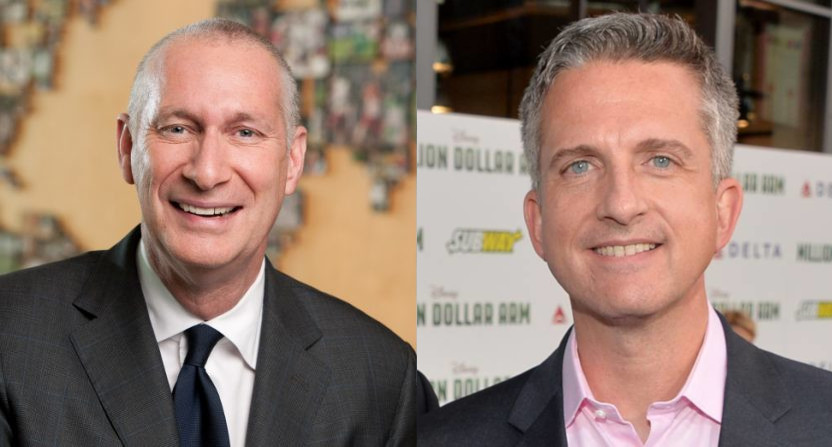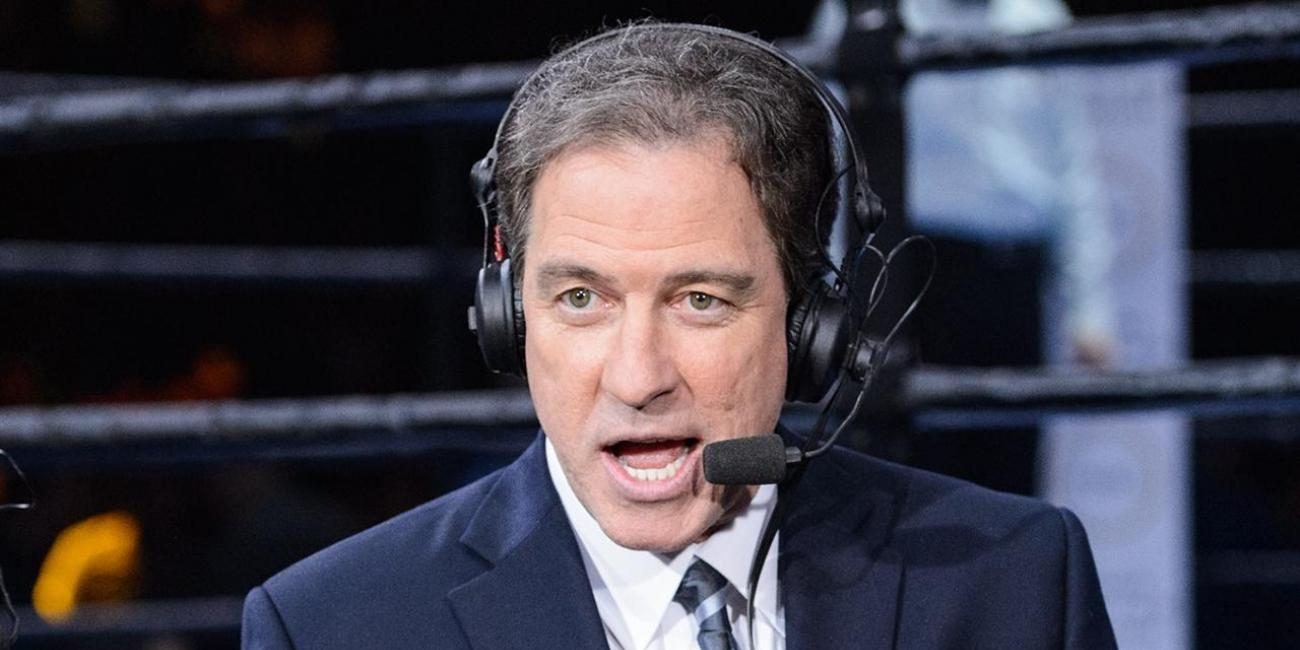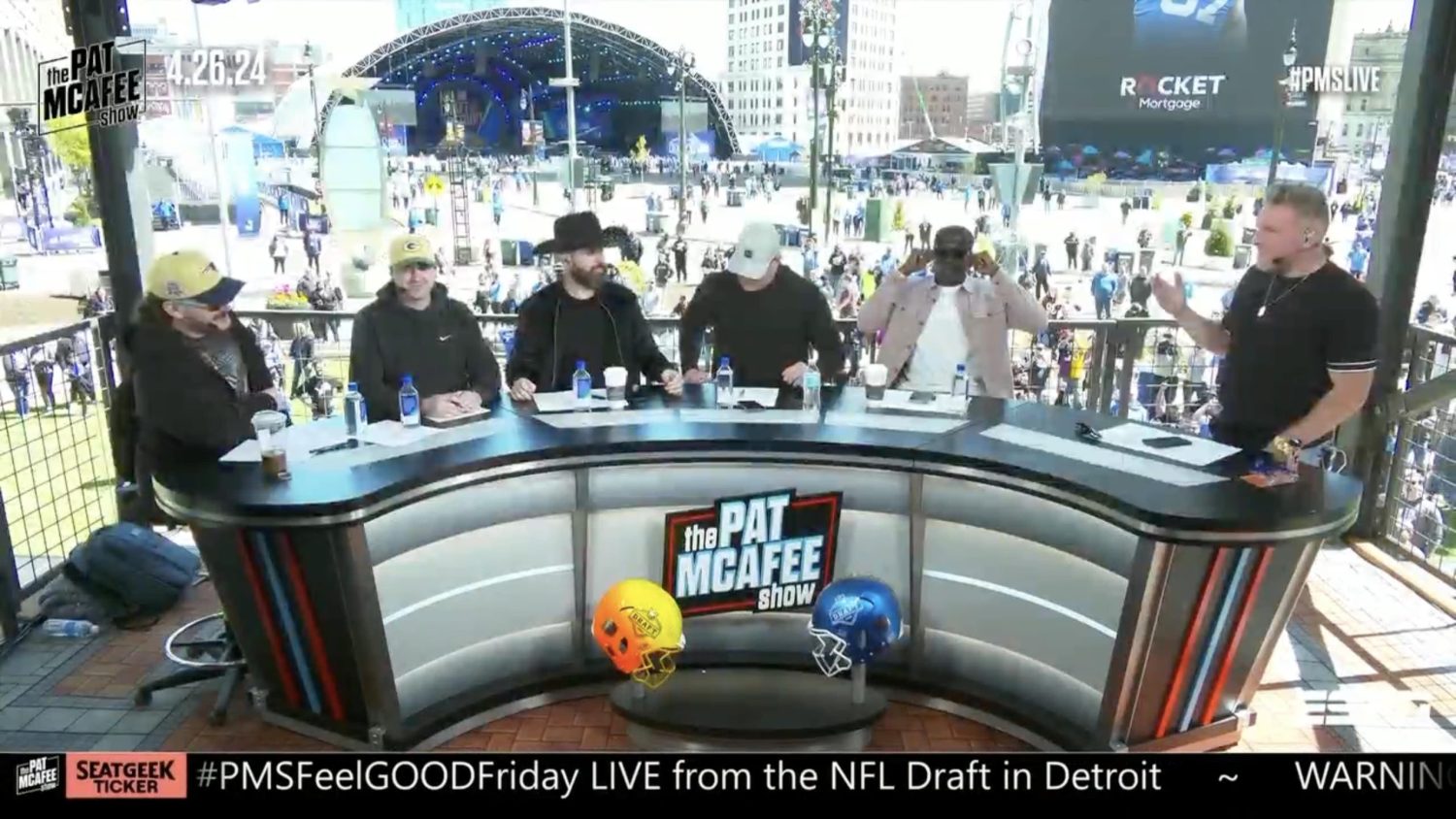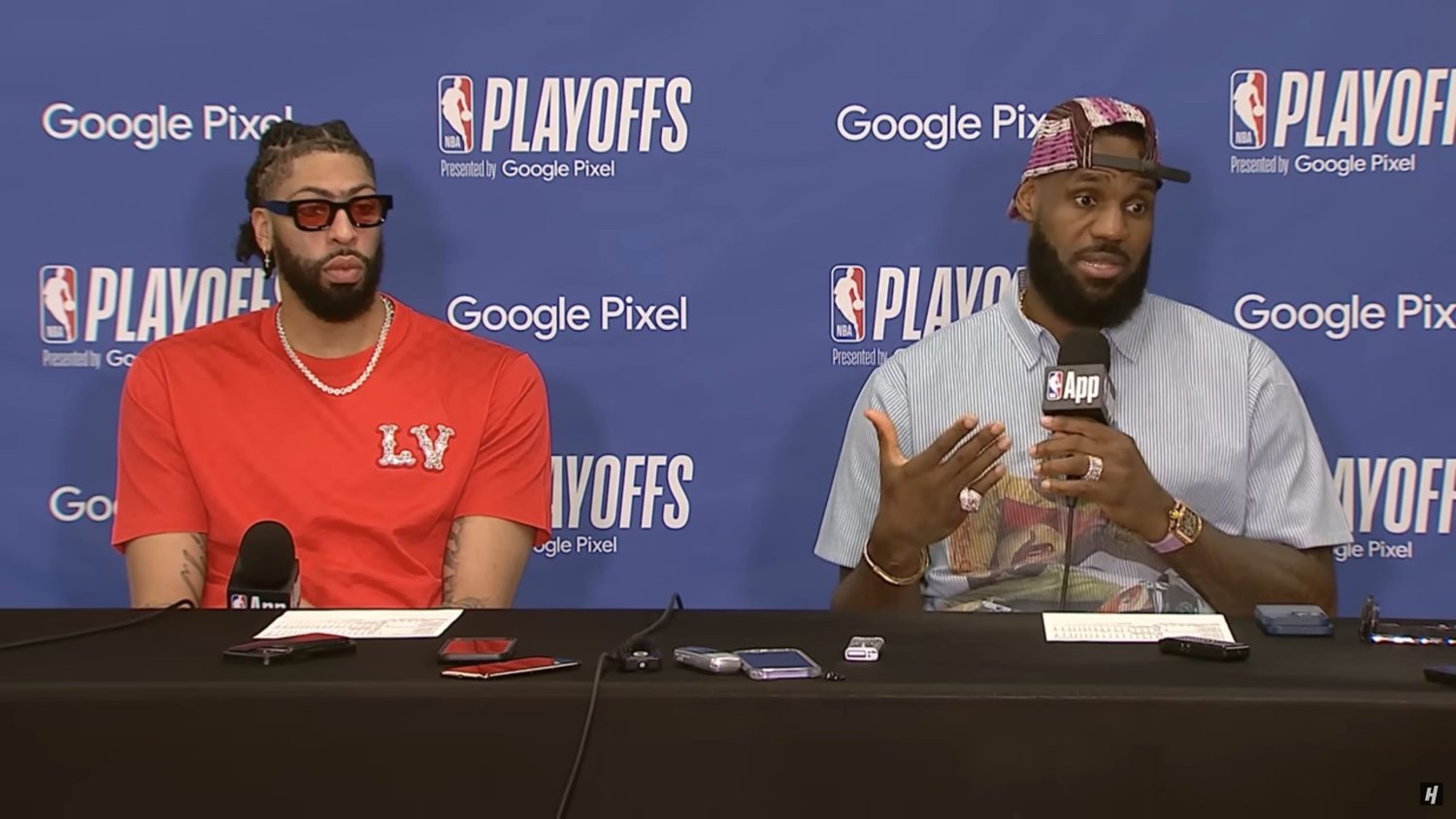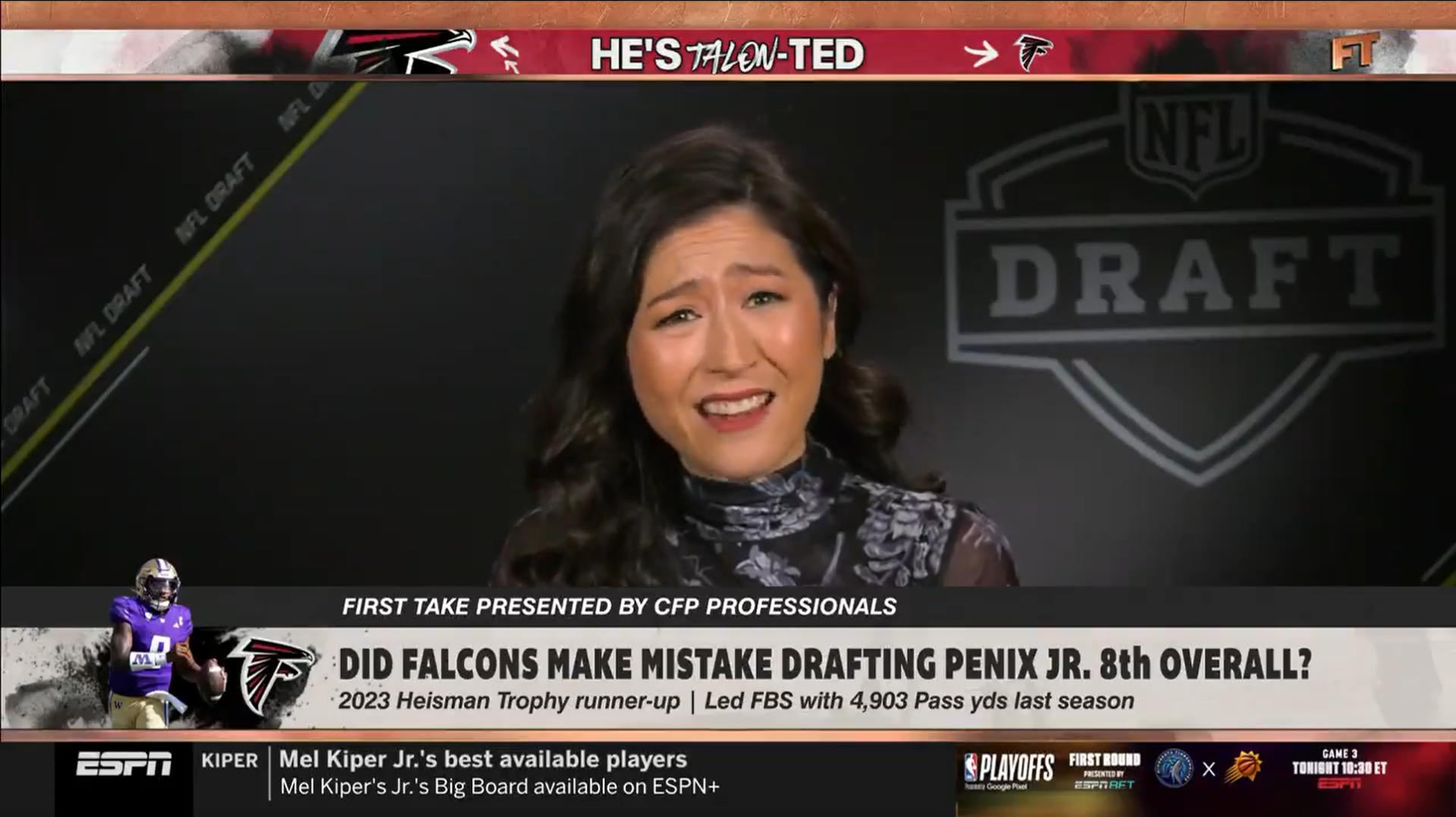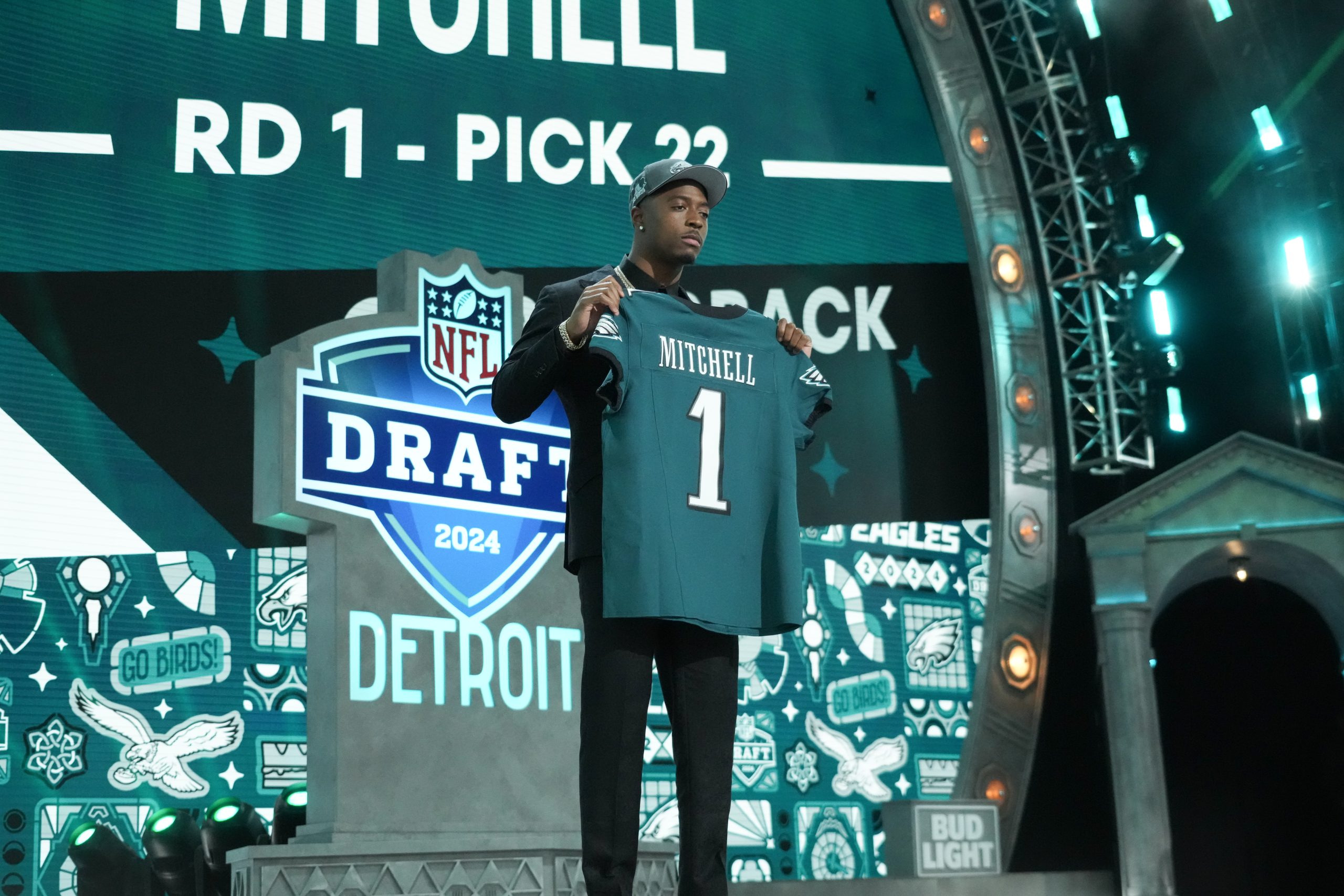DAZN executive chairman John Skipper has a long history with Ringer founder Bill Simmons from their time together at ESPN, but that relationship ended in an acrimonious way in May 2015. That saw Skipper tell Richard Sandomir of The New York Times they wouldn’t renew Simmons’ contract and then releasing a longer statement, later confirming at upfronts he didn’t tell Simmons in advance. Simmons was still upset about that over a year later, telling The Hollywood Reporter his exit was “fucking shitty” and saying “By the way they handled it, you would think I played grab-ass with some makeup assistant or something.”
But it’s now years later, and with neither currently at ESPN, they’ve patched up their differences in an interesting way. Skipper and Simmons got together to publicly discuss just what happened on Simmons’ Ringer podcast (which DAZN is now sponsoring, along with other elements of the site, for three months). That podcast dropped Wednesday, and the whole 100-minute-long episode is interesting from a sports media perspective (there’s a lot of discussion about Skipper and Simmons’ respective career paths, ESPN’s website, ESPN The Magazine, 30 for 30 and more, and we break down some of that over here), but the parts on Simmons’ ESPN exit are particularly notable. In particular, that includes Skipper saying he opted not to try and renew Simmons’ contract because he knew Simmons would be leaving anyway, and Simmons agreeing with that. Here’s the podcast:
Even Simmons’ intro touches on his parting from ESPN heavily, saying “We kind of had an acrimonious ending, and a few years passed, and we’re going to talk about everything that happened with us, because we’re actually partnering up again here, at least for a couple of months, with DAZN and The Bill Simmons Podcast.” He then says this was recorded Monday, but “We had had dinner four months before that and talked a lot about how things went sideways with us, because I think it was a relationship both of us had really cared about at one point in time. And years pass and you get older and you realize you would have done some things differently. We’re going to talk about all that. I’ve never quite done a podcast like this one, but it was worth doing and I’m glad he came in.”
The majority of the Simmons exit discussion then starts around 71:20, after a lot of discussion about DAZN, ESPN, sports media and much more. Here’s a transcription of the key comments:
Simmons: “I think the genesis of it was probably me being unhappy with some stuff that happened with [NBA] Countdown, because I had not wanted to go back. And you and I weren’t spending as much time together.”
Skipper: “Very little.”
Simmons: “And all of a sudden it gets a little ornery, and that leads to me doing the podcast, I said the stuff about Goodell, and then you have to suspend me.”
Skipper: “Look, we…”
Simmons: “You left me a very angry answering machine message, which I erased, cause you’re my friend.”
Skipper: “Good, thank you very much. I’d be like Nick Nolte.”
Simmons: “It was like a Christian Bale type, you were so mad at me. I think that’s the maddest anyone’s ever been at me.”
Skipper: “I think you and Jemele Hill were the beneficiaries of two of the very few temper tantrums I ever had. I have very few temper tantrums, but that was one of them. And we were no longer dealing with each other day to day, I always saw all the work you did, but we weren’t dealing with each other day to day, so when you would pop back up in my life, it would be because there was some kind of problem. It’s like ‘Damn, I’ve got a full day already and now I have to spend the next three hours trying to figure out how to deal with this.'”
Simmons: “Which is something that I now identify with.”
Skipper: “Yeah, as management. You’re now The Man.”
Simmons: “I get it! I will say in that case, Jalen [Rose] and I had done like a six-hour video shoot that day, and we’d also done this podcast. And I hadn’t actually heard what I said, I wish I would have heard it, because there’s one part I would have taken out and it would have made it a lot easier. I stand by the Goodell lying about stuff part, but I don’t even know what I was saying with challenging my bosses. It was kind of incoherent.”
Skipper: “Yes, it was basically ‘I dare anyone to do anything.'”
Simmons: “Which was just stupid. As Kyle knows, we take stuff out of the podcast all the time. You push the envelope and then you…”
Skipper: “It’s funny, how you remember things. I was standing on the sidewalk in Raleigh, North Carolina, trying to visit friends of mine and yelling into the phone at you. And you said ‘Look, we put the damn thing up, I didn’t have time to listen to it, and yeah, in retrospect, I probably shouldn’t have challenged.’ I don’t think you ever apologized for the remark.”
Simmons: “I will never apologize for that.”
Simmons: “So then, when I got suspended, you had someone else tell me, and I was mad about that.”
Skipper: “I was probably a coward.”
Simmons: “Well, who knows. I was mad about that. And then we didn’t talk, and then you called me to talk, and I wouldn’t talk to you. It was like 13-year-olds. I look back on it and I’m like ‘God, why did I handle it like that?’ But I took it so personally I couldn’t even talk to you then. And a lot of that had to do with the history we had; it was like fighting with my dad or something. ”
Skipper: “Yeah, it was like you said, after we did the Grantland deal, it was like ‘This is my guy. Where’s my guy gone? He’s disappeared into the corporation and he doesn’t think I’m important anymore.’ And the answer was of course you were important, but I didn’t have time to deal with you.”
Simmons: “I don’t think I was the only one in that position, because you were such a good boss when you were in an easier job, and now you were just quickly passing through people’s lives. It was just different, because that wasn’t your management style. Any time you went into a meeting, you always knew what the fuck was going on, you always had a way of ‘Even though I just spent a half hour with John, it was a really meaningful half hour.’ And then, at some point, that job was crazy.”
Skipper: “I remember thinking ‘We have a thousand people under contract for talent, just talent, so if I see three people a day [for a year], I’ll see everyone…one day. One time a year. And of course you have a hierarchy of who you can see; at that point, I was mostly in Bristol and LA, and you’ve got to see the 30, 40, 50 people who matter the most. And I always hated that I’d run past people in the halls of Bristol and go ‘Hmmm…I think that guy’s name is Bob, I’m pretty sure he’s like the third play-by-play guy on SEC football.’ I had a natural inclination to try and know everyone…ultimately, you have to be somewhat impersonal at a very senior level with tens of thousands of people. There’s no way to know everybody.”
Simmons: “We had a dinner a month after I got suspended in LA, and I made the mistake of telling someone who worked for you my plan for things I wanted to talk about, and it was like playing a NFL game where the other team knew my plays. …I don’t think that made it great. Did you think I was going to leave at that point? We’ve never talked about this.”
Skipper: “I’d ultimately come to believe that you weren’t going to be happy within the constraints of ESPN. It always gave me sort of a bad vibe when I had to be the bad guy and call…I wanted to let you do the Obama interview, but when I got to be The Man, I had to call to say ‘You can’t do this.’ I don’t like that role particularly, it wasn’t natural to me, but I accepted it was my responsibility. And I’ve always taken my responsibilities very seriously. The morning when I’d decided we weren’t going to renew your contract, all I did was beat you to the punch, because you weren’t going to stay, and I knew that.”
Simmons: “That is true.”
Skipper: “Ultimately, you felt you needed to find out what you could do for yourself.”
The latest
- Could NFL see next Saudi sportswashing controversy?
- ESPN and NBA have reportedly ‘essentially come to terms’ on deal that would keep Finals on ABC
- G/O Media sells The Onion to ‘Global Tetrahedron,’ ex-NBC reporter Ben Collins to serve as CEO
- Eli Gold on Alabama exit: ‘You can’t argue with city hall.’
Skipper: “I am sorry that Grantland was a casualty of that, because it was a good group of people. …I think we had invested enough money that I don’t think there would have been receptivity internally to ‘Just let him have it.’ If it had been The John Skipper Company, in retrospect, I would have said ”Just take it and go do it yourself.’ You would have had no trouble, you would have found sponsors.”
Simmons: “The [Erik] Rydholm model was the one that was the most interesting to me, because he basically was outside the company but worked for the company. I remember thinking, ‘If we just did that, that would work.'”
Skipper: “Yeah, there’s a couple. Maura Mandt, who does the ESPYs, has her own company and does the ESPYs for us. And yeah, you probably could have created content for us and done what you’re doing now if I’d been savvy enough to figure that out.”
Simmons: “The beat to the punch thing, though. The night before, I still hadn’t felt like I had really said anything. But what happened was people were writing these pieces, and you were reading the piece and not actually listening to, I mean, I was on the Dan Patrick Show, I made some joke about Goodell and his testicular fortitude, but the way the piece made it sound, and you had already told me ‘You’ve got to steer clear of the NFL, you really have to.’ So I don’t know. Do you regret that now? The beat to the punch thing?”
Skipper: “I regret that it interfered with our relationship for a long time.”
Simmons: “Because you should have just called me and talked about it.”
Skipper: “We should have.”
Simmons: “Because I’d had 14 good years at that point.”
Skipper: “You’d had 14 great years. You were a master at Twitter. And I think I calculated somewhat coldheartedly, ‘He’s going to beat me to the punch and it’s going to be on Twitter.’ I do recollect that I didn’t get a heads-up about The Dan Patrick Show.”
Simmons: “That was another one where I’d been on the show before and I didn’t know I had to do the heads-up, that was stupidity on my part, but like you, I was doing so many things, things were slipping through the cracks. …It’s just stupid now, we had this real relationship, and at some point, we should have just had a real conversation about it. But I see it from your point, I look like the rogue asshole who’s not listening to you and making you look bad as a leader, which is a whole other issue.”
Skipper: “Look, in retrospect, we both in some ways looked a little petulant, foolish. And we would have been more dignified had we said ‘Let’s get in a room and figure what we’re going to do here.'”
Simmons: “Yeah, just go have a dinner and talk about this shit.”
Skipper: “But it’s hard, and it’s a cop-out, but that doesn’t mean it’s an irrational or an incomprehensible copout, but I didn’t have time. I didn’t have a day to fly out to L.A., which is what it would have taken. In the past, you’d mentioned we’d had dinners before, we’d talked, if we’d had a dinner, we would probably have figured it out. I didn’t have time. It’s a cop-out, and I should have made time for someone who’d made the contributions you had, but I don’t think you ever did not feel genuinely appreciated.”
Simmons: “That’s true.”
Skipper: “I knew that what you had done had been one of the things I’d used to get me to where I’d gotten to. That, and E:60, and 30 for 30, and the magazine, and the website, and there were tons of people…ultimately, your success is made by other people, and you get the benefits of it. …The inevitable irony of success is you ascend to a level that’s a lot less fun, but a lot more powerful, and financially rewarding, and a lot more influential. And you decide, it’s a bargain.”
Simmons: “So [Disney CEO Bob] Iger didn’t tell you to do it?”
Skipper: “To do what?”
Simmons: “To get rid of me?”
Skipper: “No, no, [laughs]. I mean, [the Goodell comments] made him mad too. But to a remarkable degree, it’s one of the things I remember quite fondly, the autonomy in the job. There weren’t ten instances where either George [former ESPN executive chairman George Bodenheimer] or Bob said ‘No, you can’t do that.’ There were 10, but it was not ‘You cannot renew Bill Simmons.’ If I had figured out a way and gone in, we would have gotten to do it.”
There’s a whole lot of other interesting material in this podcast, some of which we discuss over here. But the discussion of Simmons’ exit and the feelings on both sides that led up to that is particularly notable, and it’s a further illustration that the parting wasn’t as specifically about the particular NFL comments as it was about the wider issue of Simmons chafing under ESPN restrictions. And it’s particularly notable to hear Simmons agree with Skipper’s analysis that he wasn’t coming back (specifically within ESPN, at least), and to hear Skipper express some regret for not handling it by calling or dining with Simmons before telling the media. This parting of the ways was four years ago, but it still carried significant effects for both Simmons and ESPN, and it’s well worth listening to this to see how both Skipper and Simmons view it now.

